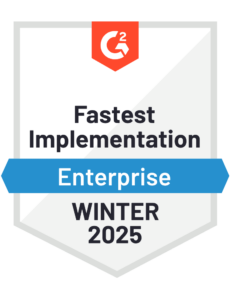AI In Accounting: Investing in Your Employees’ Future
Blog post
Share
Technology investments can sometimes be a hard pill to swallow for finance organizations who worry they may not be able to recoup the cost. In reality, most organizations who struggle in this area either didn’t have the data in place to properly measure the return on investment or did not properly train, enable and encourage teams to use the technology. But considering the field is facing a significant shortage of accountants, these excuses won’t fly. As respondents to the previously mentioned study from the Institute of Management Accountants and Robert Half shared:
“The firm’s reluctance to hire or invest in workload-reducing technology is concerning.”
“Instead of prioritizing work-life balance and efficiency through technology, [CPA firm leaders] focus on billable hours and extracting maximum value from staff.”
Reflect on these statements. Do you think accountants in your organization feel that way? Technology investments aren’t just investments for your organization, they are investments in your people. Learning to use technology, like AI-driven accounting software, not only helps them complete tasks faster and makes their jobs less tedious and more rewarding, but it also offers them career-building skills.
Keys to Success with AI in Accounting
Maybe your accounting and finance team consists of employees who crave technology and expect to have AI in accounting software, but maybe need some help understanding how to use artificial intelligence to make their jobs easier. Or maybe your team includes employees who are hesitant to embrace new tools and worry AI is going to replace them. It’s an understandable and common concern, and Trintech’s CEO, Darren Heffernan, recently penned an article in Fast Company addressing this issue. His take: AI won’t take your job, the person who knows how to use it will. When it comes to implementing AI in accounting, your investment and success lie in ensuring employees see it as a value-adding tool.
- Promote a culture of collaboration between AI and employees. Make sure your more skeptical employees see AI as a supportive tool, rather than a replacement. When training your teams, start slow. Instead of trying to take a 20-step process down to only two steps, take that 20-step process down to 10, demonstrating to employees that you value their oversight in the process. Watch video: Implementing Trintech’s AI In Your Organization: You Set the Pace
- Ensure AI-driven efficiency aligns with employee satisfaction. Involving employees in the AI adoption process, prioritizing transparency in AI’s role while acting as evangelists, and ensuring that AI tools are user-friendly will significantly improve employee acceptance, adoption, and satisfaction. Consistent feedback loops where employees can voice their experiences and concerns about AI help organizations fine-tune AI in accounting software to better meet the needs of the workforce.
By embedding AI into accounting processes, accounting professionals can quickly grasp complex tools, minimizing the steepness of the learning curve and easing the transition to more advanced roles and complex job duties. Seeing how it streamlines one part of their job helps them understand how the same approach can be applied to other parts of the job.
The more your accountants can extricate themselves from tedious matching and other manual processes, they can focus using AI in accounting to become more skilled in strategic work, analysis, and use of technology, employees can be deployed in different ways. This transforms what was once a run-of-the-mill accountant into an individual who can now contribute to FP&A, IT, and strategic management conversations and decisions. Employees see how they are driving value for the organization, which increases employee morale and satisfaction. And bonus: happier employees lead to higher retention and position the company as an employer of choice in an increasingly competitive talent market.
Want to understand more about how the use of artificial intelligence in accounting can impact your team’s future success and work-life balance? Download our white paper.
Written by: Lindsay Rose






